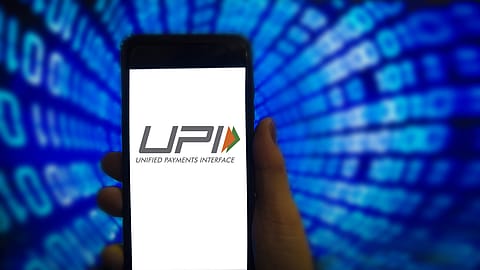SEBI mandates UPI for debt securities public issues from November
SEBI has also mandated that investors will provide their UPI ID, linked to their bank account, in the bid-cum-application form submitted to intermediaries.

The Securities and Exchange Board of India (SEBI) has introduced new rules requiring retail investors applying for public issues of debt securities through intermediaries to use UPI for fund blocking on amounts up to ₹5 lakh. In its latest statement, SEBI has also mandated that investors will provide their UPI ID, linked to their bank account, in the bid-cum-application form submitted to intermediaries.
“It has been decided that all individual investors applying in public issues of such securities through intermediaries (viz. syndicate members, registered stockbrokers, registrar to an issue and transfer agent and depository participants), where the application amount is up to Rs. 5 lakh, shall only use UPI for the purpose of blocking of funds and provide his/her bank account linked UPI ID in the bid-cum-application form submitted with intermediaries,” the circular says.
Although UPI is mandatory for individual investors applying for amounts up to ₹5 lakh, investors will still have the option to use alternative methods, such as Self-Certified Syndicate Banks (SCSBs) or the stock exchange platform, to submit their applications, according to SEBI's circular.
“Further, individual investors shall continue to have the choice of availing other modes (viz. through SCSBs and Stock Exchange Platform) for making an application in the public issue,” the circular adds.
SEBI has shortened the minimum subscription period for public issues of debt securities from three working days to two working days. Additionally, in the event of a revision in the price band or yield, the bidding period can now be extended by one working day, compared to the previous three days.
Another key change is reducing the period for seeking public comments on draft offer documents. For issuers whose specified securities are already listed, the public comment period has been reduced from seven working days to one day. For other issuers, the period has been shortened to five working days.
The new provisions will apply to public issues of debt securities, non-convertible redeemable preference shares, municipal debt securities, and securitised debt instruments. These rules will come into effect from November 1, 2024.
Recommended Stories
The new rules are expected to streamline the application process for public issues of debt securities and align this with the existing process already in place for public issues of equity shares and convertibles. With the implementation of these rules, SEBI seeks to reduce paperwork and enhance efficiency, making the process faster and more convenient for investors.
This shift is expected to attract more retail investors to the debt market, which aligns with SEBI’s broader goal of making the debt segment more appealing than the equity segment by reducing the time it takes for issuers to access funds. UPI will not only simplify the process but also attract more investors to the debt segment. This shift comes as UPI transactions have surged to ₹1,669 lakh crore, providing a faster and more efficient alternative to traditional banking methods.